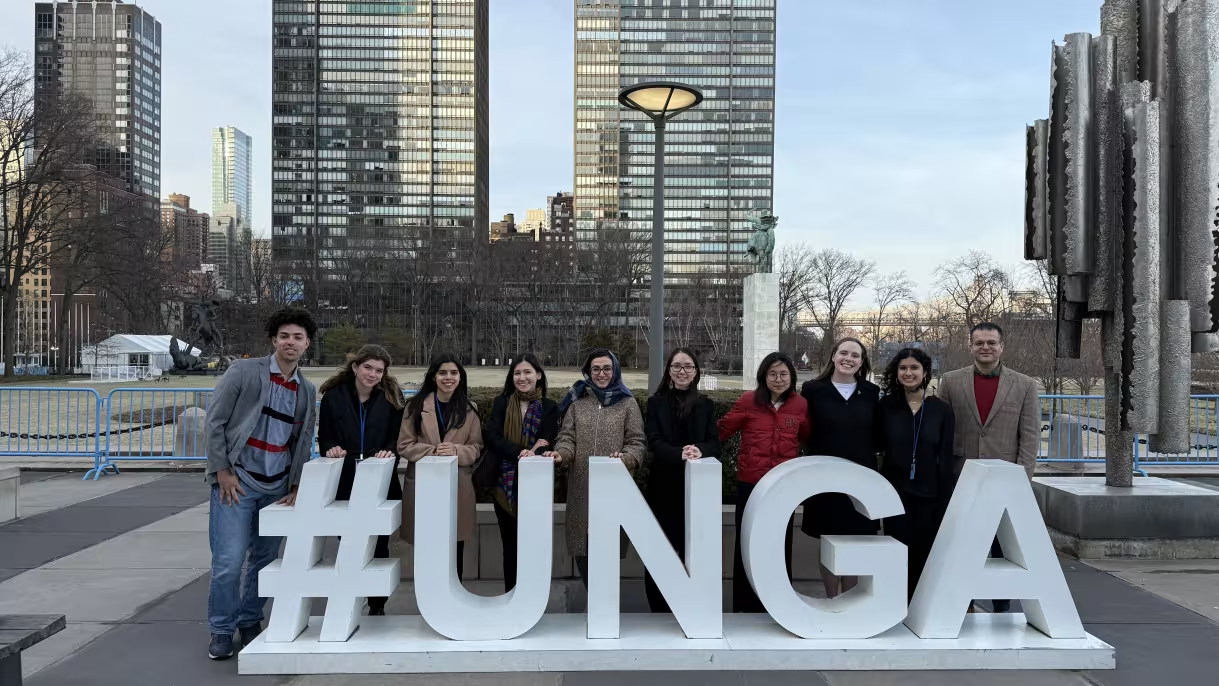

SPIA Undergraduate Students Attend UN Commission on the Status of Women (CSW69) and Speak at APL Side Event
Four Princeton University undergrads helped to organize and also participated in a high-level event at the United Nations Headquarters on March 14, with one of them delivering remarks as well.
The event, “Upholding the Rights of Afghan Women,” was part of the 69th Session of the Commission on the Status of Women. It was organized by the Princeton School of Public and International Affairs’ Afghanistan Policy Lab in collaboration with the Permanent Missions of Afghanistan, the Republic of Albania, Malta, Denmark, and Italy to the United Nations; Women in International Security; the Georgetown Institute for Women, Peace and Security; the Harvard College Women’s Center; and the Organization for Security and Co-operation in Europe.
The students’ participation included engaging in discussions with high-level representatives from various governments and the U.N., along with leading advocates, experts, and international policymakers, on the future of women and girls in Afghanistan, as well as organizing and managing the event.
“At the event, I learned about all the work that has been done by the Afghan activists advocating for women’s rights. I am eager to take their lessons with me,” said Megan Cameron ’26.
Elaha Alizada ’27, an APL student volunteer, presented on her voluntary student-led initiative offering online English classes to Afghan girls and women. She told the group that after the Taliban takeover of Afghanistan and its subsequent ban on girls’ education, she and other volunteers decided to take action.
“If Afghan girls cannot go to classes, we will bring classes to them,” Alizada said. “The program now has grown to 100 volunteers, educating more than 300 girls and women across Afghanistan.”
In the discussions, panelists underscored the indispensable role of women, girls, and youth in fostering peace, security, and prosperity in Afghanistan. They highlighted the urgent need for sustained international advocacy, education initiatives, and youth empowerment to uphold Afghan women’s rights.
“The talks at the conference were really inspiring and eye-opening,” Joshua Gauche ’25 said. “As an American, I think that after the Taliban’s takeover, the media stopped covering Afghanistan. Here, I learned how women are struggling for their rights and education.”
“The conference highlighted the ongoing need for allyship and the ongoing need to integrate women’s rights into all future diplomatic engagements with the Taliban regime in Afghanistan,” said Abby Lu ’26.
Closing the event, Alizada shared her advocacy efforts in educating women and girls in Afghanistan despite the Taliban’s restrictions. She was joined by other Afghan youth advocates, underscoring the crucial role of the next generation in the fight for women's rights and human rights in the country.
“One of my key takeaways from the discussion was the urgent need for global solidarity in defending Afghan women’s rights,” Alizada said. “The U.N. and its partner nations, as larger powers, have an obligation to hold the Taliban accountable by enforcing real consequences for their oppressive policies.”

